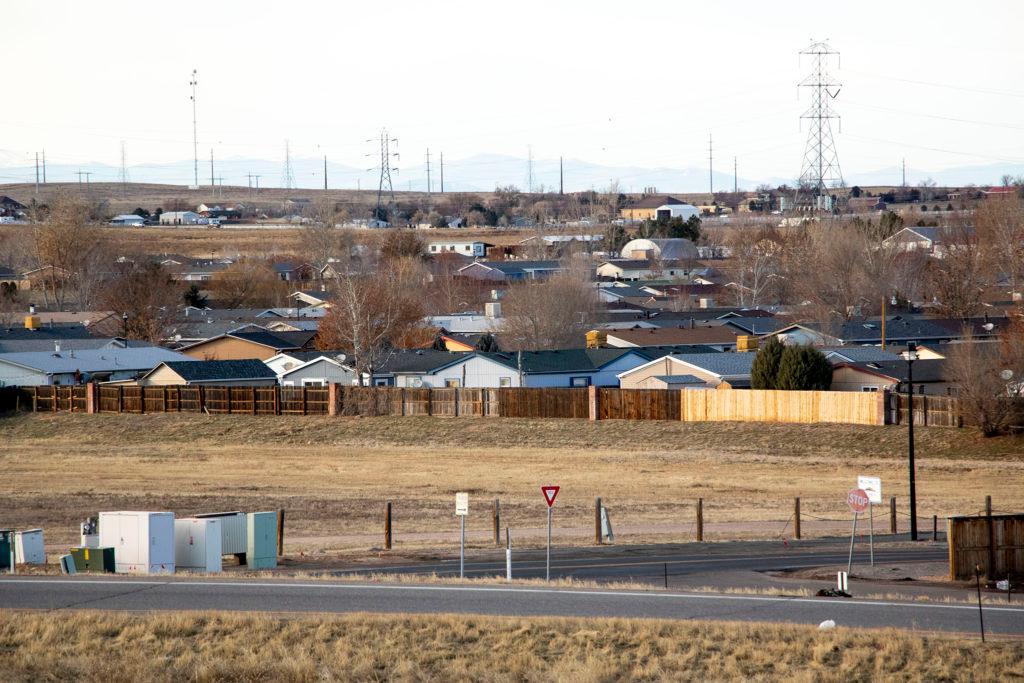
Lawmakers are moving ahead with an attempt to short-circuit a proposed property tax cut before it even gets on the ballot, providing a smaller tax cut as a substitute.
Senate Bill 293 passed the Senate Monday 23-11, with some bipartisan support — four Republicans and all but one Democrat voted yes. But it also drew bipartisan criticism. Some lawmakers see it as a way to stop a devastating cut that would disproportionately harm rural communities. Others believe it would undermine the system of direct democracy that is at the heart of Colorado politics.
The debate springs from a ballot initiative that may go before voters this November: the conservative group Colorado Rising Action is collecting signatures for a measure that would cut property tax rates statewide by nine percent.
A bipartisan group of lawmakers worries that voters will approve that cut — taking away money from the local districts that rely on property taxes. So they have written a counter-measure. Senate Bill 293 would create a smaller temporary tax cut — while rewriting state law in a way that would block the ballot measure from taking full effect.
Sen. Bob Rankin, a Republican on the Joint Budget Committee, said that the bill is necessary to stop a statewide vote from doing disproportionate harm to rural areas.
A cut to the statewide assessment rate would chop a percentage off the revenues that support emergency services, county governments and other local services. That may hurt more in rural areas that don’t have a protective buffer of revenue growth from the development boom.
“I would urge them to think about the impact on the parts of the state that are not up and down, the Front Range,” Rankin said last week. “This is the same discussion we had on the Gallagher repeal. Rural conservatives supported repealing (the Gallagher amendment), and I believe rural conservatives will support this bill.
On the Senate floor, the measure drew criticism from both sides of the political spectrum. Sen. Julie Gonzales, a Denver Democrat, said that she would oppose the bill. She said that approving any cut to property taxes would disproportionately benefit wealthy property owners.
“I ask that you not settle for a temporary fix to a disturbing proposition,” she said.
- Colorado Cities Can Now Require Affordable Housing In New Developments — With A Catch
- Colorado Government Websites Still Aren’t Accessible To Many People With Disabilities. But New Funding Could Finally Change That
- ? Purplish: As The Final Days Of The Legislative Session Approach, What's On The Chopping Block?
Sen. Barbara Kirkmeyer, a Republican from Weld County, said that the legislature would be taking away voters’ power to shape taxes.
“What this bill does, at best, is it infringes upon the rights — the constitutional rights — of the people to initiate the issue onto the ballot,” she said. “And at its worst, in its response to Initiative 27, it’s working to manipulate the outcome of an election.”
She argued that it’s not the legislature’s job to manage local governments’ revenues. Local voters can always choose to pay more mills — increasing the local part of the property tax formula — to make up lost revenue. But voters in rural areas have historically been hesitant to approve tax increases, leading Rankin and others to worry that they won’t be able to make up the lost money.
Sen. Chris Hansen, a Democratic cosponsor, said that the bill was a compromise option that would give people relief from taxes while preventing a more dramatic change.
“We need to look at the long-term fiscal management of the state, make sure that schools are funded, make sure that special districts are funded, particularly in rural areas where this would have a massive hit on budgets for those important services. And so we are taking legislative action,” he said last week.
The bill heads next to the House, where Democrats have a stronger majority. It will have to stay on the fast track to make it through the process though; lawmakers are aiming to complete their work and adjourn Tuesday.









